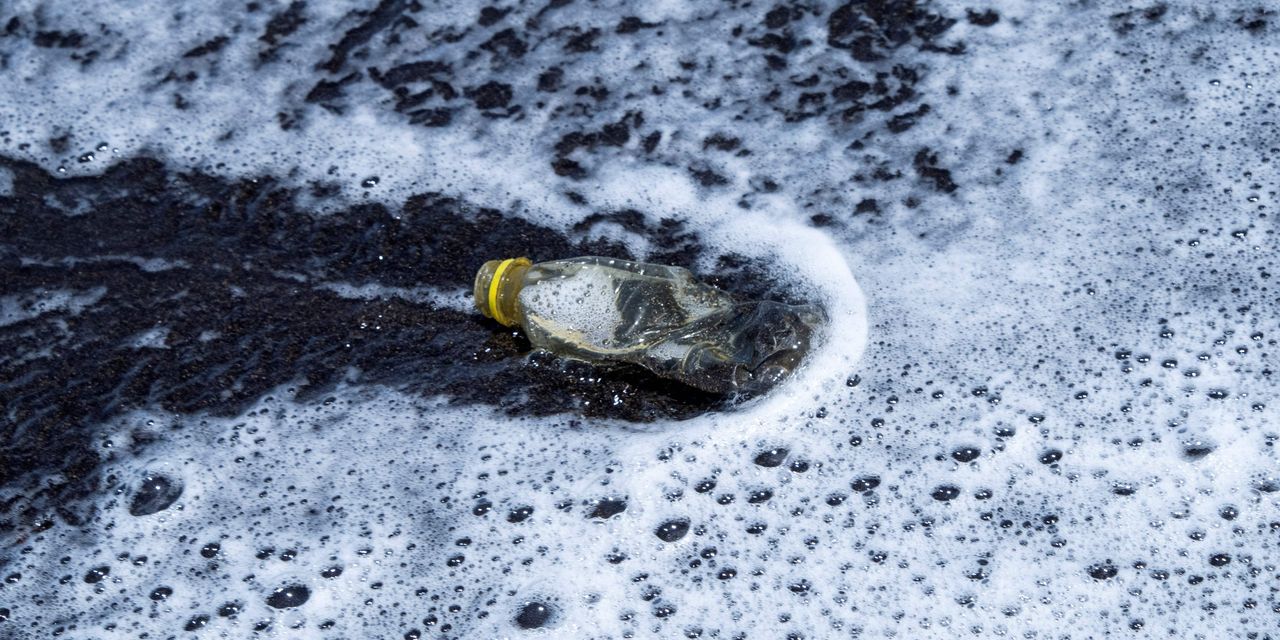Recycling is all the rage these days, but a new report warns that recycling plastic makes it more toxic and doesn’t solve the problem of plastic pollution.
The report from Greenpeace on the health threats from plastic recycling catalogs peer-reviewed research and international studies that show the toxicity of plastic increases with recycling.
“The plastics industry—including fossil fuel, petrochemical, and consumer goods companies—continues to put forward plastic recycling as the solution to the plastic pollution crisis,” said Graham Forbes, global plastics campaign lead at Greenpeace USA, in a press release. “Plastics have no place in a circular economy.”
Forbes said the only solution to ending plastic pollution is to “massively reduce” production.
The Greenpeace report prompted criticism from the plastics industry. “The proposals in their report would disrupt global supply chains, hinder sustainable development and substitute plastics with materials that have a much higher carbon footprint in critical uses,” said Joshua Baca, vice president of plastics at the American Chemistry Council.
The amount of plastic waste produced globally is on track to almost triple by 2060, with around half ending up in landfill and less than a fifth recycled, according to a 2022 OECD report.
Greenpeace said very little plastic reaches recycling facilities—less than 9% globally, according to the United Nations Environmental Programme.
Still, recycling has become a rallying cry for firms eager to burnish their sustainability credentials. And despite a backlash against environmental, social, and governance investing, known as ESG, many companies are forging ahead with plans for a circular economy—keeping more products and materials recirculating in the economy to cut waste and pollution. The efforts range from slashing the amount of virgin, or new, plastic in packaging to refurbishing heavy equipment for reuse.
The Greenpeace report comes on the heels of a separate peer-reviewed study of one recycling facility in the United Kingdom that found breaking down plastics for recycling releases microplastic pollution into the environment. It estimated that 6% to 13% of the plastic processed could end up being released into water or the air as microplastics.
Next week, negotiators will meet in Paris to discuss a global plastics treaty. When leaders met in Uruguay in December for the first round of negotiations, talks ended with agreement to end plastic pollution but a split on whether goals and efforts should be global and mandatory, or voluntary and country-led.
The U.S. advocated for an accord similar to the Paris climate agreement where countries would set their own national voluntary targets and plans. Others, including the European Union, want mandatory global regulations for countries and companies.
In the report, Greenpeace called for an ambitious treaty “that accelerates and provides the conditions needed for a just transition away from dependence on plastic.” The treaty, it said, should promote safer, toxics-free materials and reuse-based, zero-waste economies.
Write to Lauren Foster at [email protected]
Read the full article here




